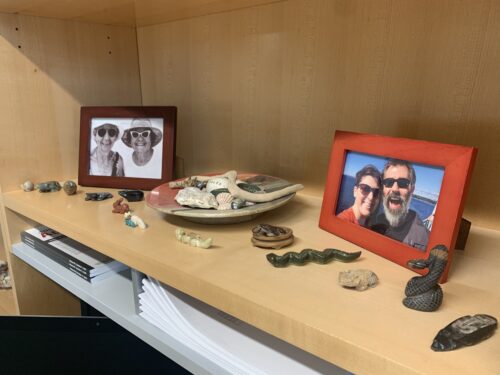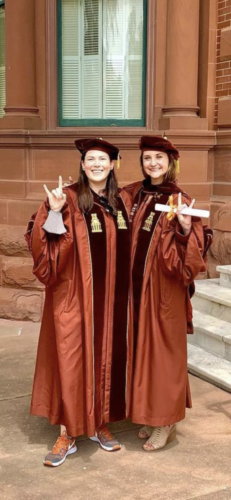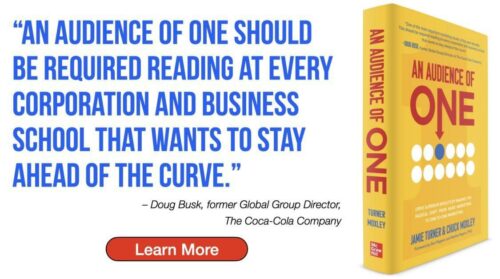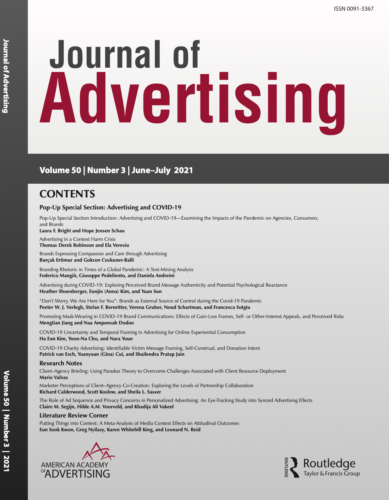This semester I taught a PhD methods course to a small group of students in my department – the course is the second in a series and it focuses on learning about the popular methods in advertising research as well as how to apply those methods to answer their specific research questions. We also talk a lot about how to manage an academic career – How do you build a research track? How do you handle rejection from journals? What is this whole peer review thing? How do you get tenure? What does service mean? How do I teach and work on research at the same time? Do you really get the Summer off? etc. etc.
In answering those questions this term, I found myself thinking about the rituals I have created over the years to get me through the ups and downs of trying to publish (and not perish!). One of my favorites is buying myself a hand-carved gemstone fetish at the end of each academic year – not to celebrate a specific publication or award but simply to mark the time. I started doing this when I completed my doctorate in 2009 and have done it each year since so I now have a small army of beautifully carved animals watching over me in my office.
The collection started with a serpent made out of serpentine – snakes symbolize rebirth so it felt right as I moved from being a student to a professor. Each year I have tried to tie in a theme – I have a bear for a year that I felt especially strong, a horned frog for the year I was awarded tenure at TCU, a lucky rabbit for the year I got a sabbatical and so on. This year I got a badger because, let’s be honest, it has been a hell of a year in Zoom land!

Office shelf with fetishes (L to R: Turtle, Lizard, Buffalo, Horned Frog, Bear, Rabbit, Fox, Otter, Serpent, Horned Frog, Rattlesnake, Badger).
So, why is this important? Because, to be in this career you need to have things that celebrate the small wins to get you through so that you can make it to the big wins, too! An academic mentor of mine told me long ago to celebrate everything – all of those little steps along the way that get you to where you need to be – and not to hold out for the big career changing moments (because they are so few!). When rejections and disappointing outcomes happen, it sure is nice to have my little animal army to remind me that good things are on the horizon even if it simply means making it through the year.
A heart-felt congratulations to all of the students who graduated this semester as well as the faculty that made it through! This includes my first doctoral advisee, Emily Chadraba, who completed her doctorate and is now Dr. Chadraba. I hope all of my students who are embarking on new adventures will make it a ritual to come back to UT to tell me about their amazing accomplishments!

Drs. Bright and Chadraba at Littlefield House, UT Austin Campus



